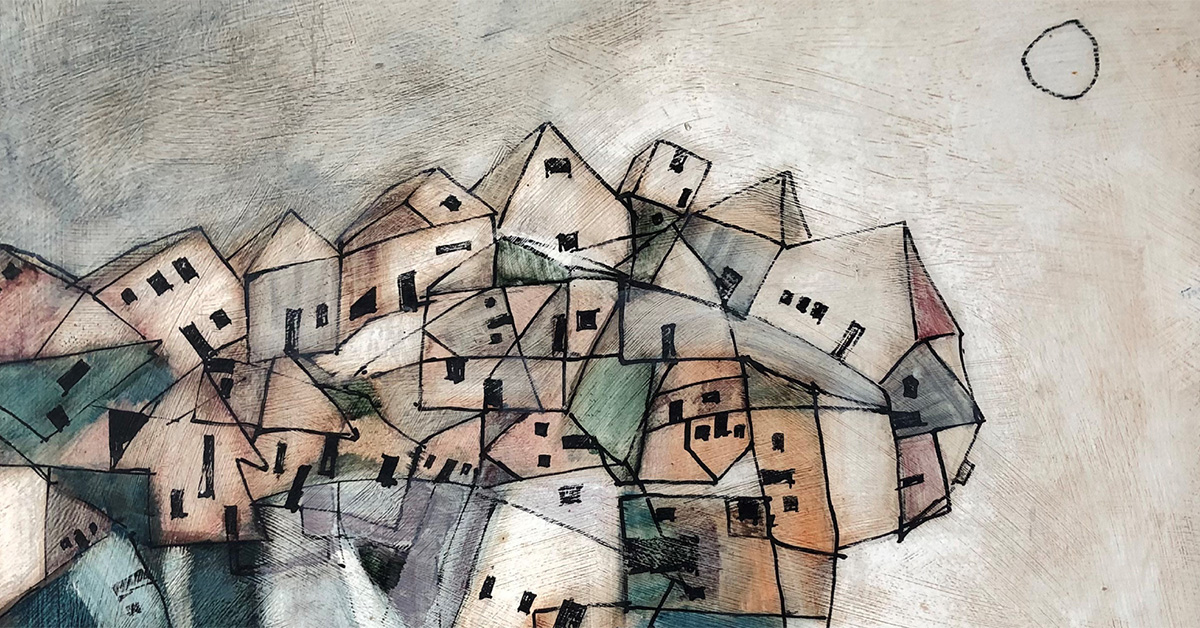

R. Lucas Stamps serves as Professor of Christian Theology at Anderson University and is an Associate Fellow of the KLC. He lives with his wife and five children in South Carolina. A previous version of this article appeared here: https://mereorthodoxy.com/pursue-obscurity/.


Craig Bartholomew, who has been a friend and mentor to many of us younger Christian scholars, often repeats the admonition: “pursue obscurity.” It is not enough simply to accept obscurity, if it happens to be our lot. Rather, there is virtue in positively pursuing obscurity, in seeking anonymity and non-recognition. I have thought a lot about this proverbial advice over the years. In fact, it has become a kind of life code for me, even if it often remains more aspirational than actual. I think about it especially in terms of our Lord’s warning in the Sermon not to practise our “righteousness before other people in order to be seen by them,” but rather to practise our spiritual disciplines – fasting and praying and almsgiving – in secret, where only our Father can see and reward (Matt 6:1–18). Jesus often exhorts us with this countercultural demand: to take the lowest place rather than the place of honour (Luke 14:7–11), to lose our lives rather than save them (Matt 16:25), to serve rather than be served (Matt 20:28). Comfort with obscurity is one important test of genuine Christian discipleship.
Those who would pursue a craft must be especially comfortable with obscurity. The long hours it takes to develop a particular skill drive away the constant need for attention. The craftsman must be at home with the silence and solitude of his shop or studio. The demand to be constantly recognized is antithetical to the pursuit of deep and meaningful work. The craftsman often works in anonymity, with only his mentors as his companions. In The World Beyond Your Head, the excellent sequel to the best-selling Shop Class as Soulcraft, Matthew Crawford highlights the work of pipe-organ builders, an elite cadre of craftsmen who find their individuality by submitting to a centuries-old tradition. Their work is slow and meticulous. It doesn’t make any headlines. But it will last for generations.
Contemporary Christians, however, are often allergic to obscurity. We want our work and our spirituality to be recognized and celebrated. I once heard Donald Miller, the best-selling author of Blue Like Jazz, explain why he stopped posting about his faith on social media by appealing to Jesus’ teaching on practising our righteousness in secret. I know Miller’s work was controversial at the time, and I am not passing judgement on it, nor on his subsequent work in the self-help and business marketing space, but his response always stuck with me. It still gives me pause every time I have tweeted or written about my faith in public.

But perhaps the pursuit of obscurity need not be taken in such absolute terms. There are some things, after all, that are not meant to be obscure, but to be shouted from the rooftops, namely, the public proclamation of the gospel of Jesus Christ and the demand it places upon the world. Further, some Christians are called to the public ministry of the word, through preaching, teaching or writing. To pursue obscurity need not mean literal radio silence or social media deletion or monastic retreat (though it may for some). To pursue obscurity is simply to resist the magnetic pull of self-promotion and platform building and “influence” that plagues so much of contemporary culture, including contemporary Christian culture.
In any event, with his help I finally tracked down Craig’s source for the admonition. It comes from Sister Wendy Beckett, a British religious, who ironically became something of a celebrity in the 1990s through her television documentaries on the history of art. The relevant quotation is from her writings on prayer. After reflecting on the ways that prayer places us, helpless and exposed, before the presence of God, Beckett writes,
Normally, as we grow older, we become progressively skilled in coping with life. In most departments, we acquire techniques on which we can fall back when interest and attention wilt. It is part of maturity that there is always some reserve we can tap. But this is not so in prayer. It is the only human activity that depends totally and solely on its intrinsic truth. We are there before God, or rather, to the degree that we are there before God, we are exposed to all that He is, and He can neither deceive nor be deceived. It is not that we want to deceive, whether God or anybody else, but with other people we cannot help our human condition of obscurity. We are not wholly there for them, nor they for us. We are simply not able to be so. Nor should we be. No human occasion calls for our total presence, even were it within our power to offer it. But prayer calls for it. Prayer is prayer if we want it to be.


Sister Wendy’s larger point is about how prayer fully exposes us before the presence of God, but the kernel of the proverb on pursuing obscurity is found in the line, “Nor should we be. No human occasion calls for our total presence, even were it within our power to offer it.” Obscurity, some prudential veiling of our deepest selves, is unavoidable and even advisable, according to Sister Wendy. Wisdom requires that some “reserve” be kept on tap in our relationships with others. This is not, as I understand it, an argument against honesty and authenticity in our closest relationships; far less is it an excuse for duplicity or dissembling. Instead, it is simply an acknowledgment that our true selves lie open, not to others, nor even to ourselves, but only to God. “You are closer to me than I am to myself,” St Augustine prayed. Authenticity does not require us to be fully present to everyone all of the time. Again, to be clear, we should not hide our sin, but rather our virtue. The better part of righteousness lies, as our Lord reminded us, precisely in its hiddenness and secrecy before our heavenly Father.
The quest to be fully present to everyone all of the time is, of course, only amplified by social media. We can’t let a single thought go un-Tweeted, a single experience un-Instagrammed, or a single life update un-Facebooked. The internet, as the prophet Bo Burnham reminds us, offers “a little bit of everything all of the time.” And it perpetually invites us to become our own content creators and publicists. But at what cost? What is lost in this perpetual need to be seen, this constant pull toward public exposure, this chasing of personal platforms? Is it really so hard to discern the ways that our souls shrivel when their doors never close for craft and contemplation? Surely there is wisdom in resisting what Robert Cardinal Sarah calls the dictatorship of noise. Surely there is wisdom in keeping some reserve on tap, as Sister Wendy reminds us. Surely there is wisdom in accepting and even seeking obscurity and preserving those most intimate moments for our shops and cells rather than our social media timelines.